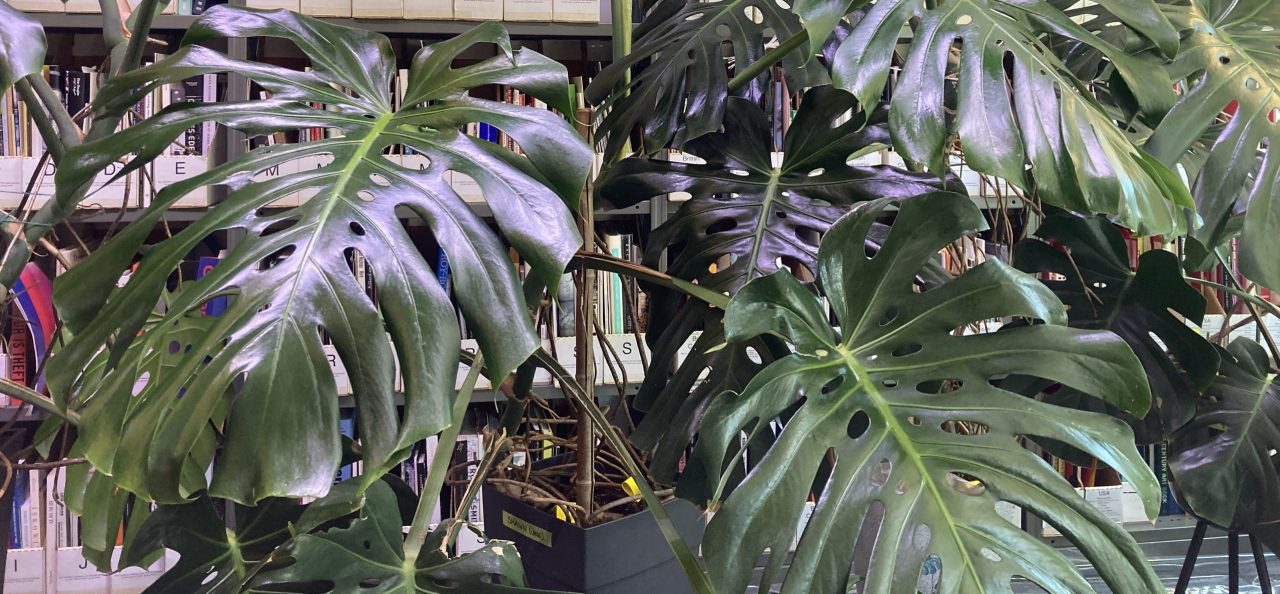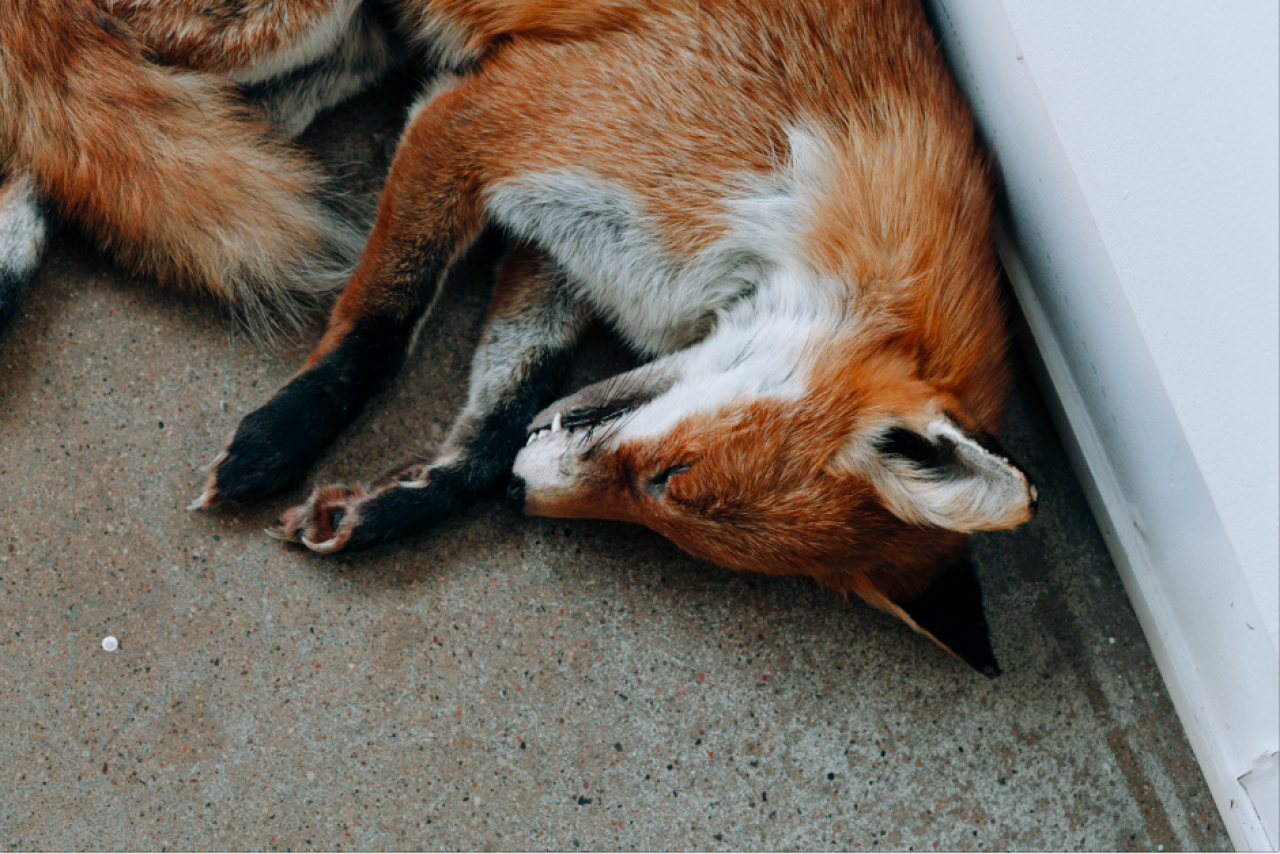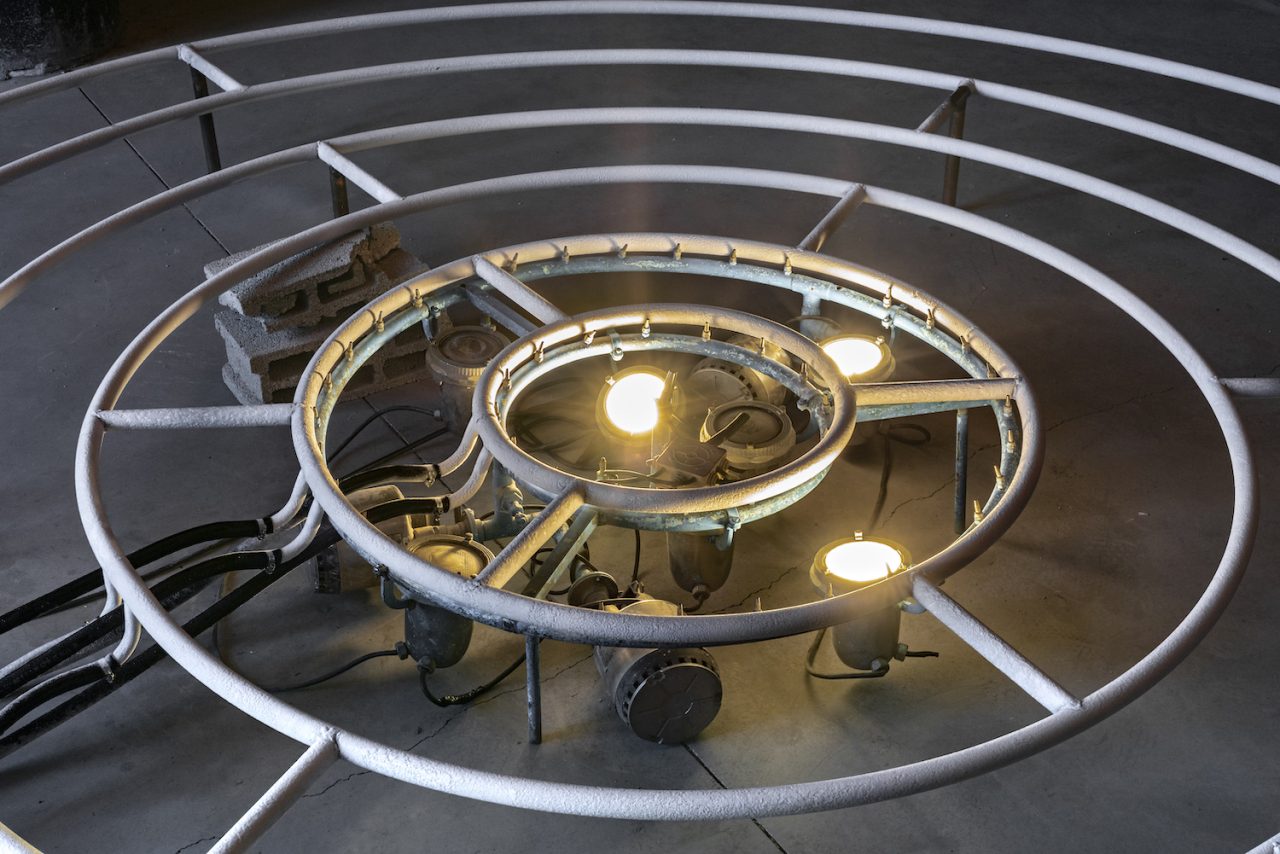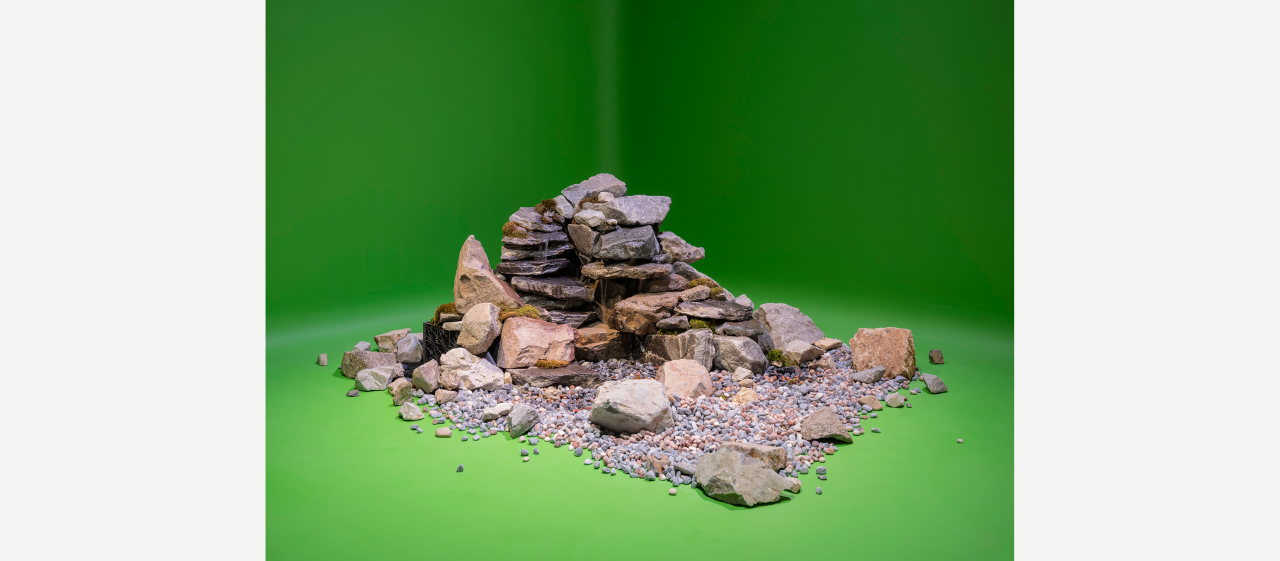5 Sep – 7 Dec 2025
Abbas Akhavan: One Hundred Years
-
Abbas Akhavan
Abbas Akhavan, born 1977 in Tehran, has been based in Canada for the last thirty years. He currently works and lives in Montreal and Berlin. Upcoming and recent solo exhibitions include Walker Art Center, Minneapolis (2026); Bangkok Kunsthalle, Bangkok (2025); Copenhagen Contemporary and Ny Carlsberg Glyptotek, Copenhagen (2023); Contemporary Art Gallery, Vancouver (2022); Chisenhale Gallery, London (2021); CCA Wattis Institute, San Francisco (2019). Akhavan received his MFA from the University of British Columbia, Vancouver (2006), and a BFA from Concordia University, Montréal (2004). Recent residencies include Fogo Island Arts, Fogo Island, Canada (2019, 2016, 2013); Atelier Calder, Saché, France (2017); and Flora ars+natura, Bogotá, Colombia (2015). He is the recipient of the Fellbach Triennial Award (2017); Sobey Art Award (2015); Abraaj Group Art Prize (2014); and the Berliner Kunstpreis (2012).
Read More
-
Melanie O’Brian
CuratorMelanie O’Brian is Associate Director/Curator at the Morris and Helen Belkin Art Gallery (as well as Acting Director 2022-25). As a curator of contemporary art, she has an abiding interest in artist-led initiatives, experimental forms, the intersection between visual art and writing, and the history of institutions. She has organized over 75 institutional and independent projects, collaborated widely with other curators and institutions, edited numerous publications and written for catalogues and magazines. O’Brian was Director/Curator at Simon Fraser University Art Galleries, Curator/Head of Programs at The Power Plant Contemporary Art Gallery in Toronto, Director/Curator at Artspeak in Vancouver and Assistant Curator at the Vancouver Art Gallery, and has taught at the University of British Columbia, Emily Carr University and Simon Fraser University. She received her MA in Art History from the University of Chicago.
Read More
Opening reception: Thursday, 4 September from 6 to 8 pm
Taking up notions of suspended time, Abbas Akhavan’s exhibition One Hundred Years contends with temporal halting and how time is represented in narrativized spaces. Weighing the narrative drive of storytelling against the emptying out of content or the freezing of narrative, Akhavan’s work simultaneously activates a stage and presses pause.
Presenting largely new works, the Belkin exhibition includes site-specific and ephemeral installations, video and sculpture that blur the meanings and distinctions between stage, set, gameboard, studio and gallery. These works continue Akhavan’s interest in institutional and domestic spaces that contend with the coexistence of hospitality and hostility. Between the institutional and domestic are spaces of captivity, fantasy spaces, gaming spaces and spaces that condition behaviour and operate as civilizing architectures.
One Hundred Years offers shifting relations and narratives between objects, situations and audiences to occupy a fertile uncertainty. Within this constellation, actions and forms blur the distinctions between sleeping, halting, freezing and glitching, and function outside of linearity.
Abbas Akhavan: One Hundred Years is curated by Melanie O’Brian and made possible with the generous support of the Canada Council for the Arts, the Province of British Columbia through the BC Arts Council and our Belkin Curator’s Forum members. Abbas Akhavan’s 2025 residency at UBC is jointly supported by the Morris and Helen Belkin Art Gallery, the Department of Art History, Visual Art and Theory and Green College, where he was made a Cecil H. and Ida Green Visiting Professor to UBC.
Image (above): Abbas Akhavan, Fatigues (fox), 2017. Photo: Yuula Benivolski
-
Abbas Akhavan
Abbas Akhavan, born 1977 in Tehran, has been based in Canada for the last thirty years. He currently works and lives in Montreal and Berlin. Upcoming and recent solo exhibitions include Walker Art Center, Minneapolis (2026); Bangkok Kunsthalle, Bangkok (2025); Copenhagen Contemporary and Ny Carlsberg Glyptotek, Copenhagen (2023); Contemporary Art Gallery, Vancouver (2022); Chisenhale Gallery, London (2021); CCA Wattis Institute, San Francisco (2019). Akhavan received his MFA from the University of British Columbia, Vancouver (2006), and a BFA from Concordia University, Montréal (2004). Recent residencies include Fogo Island Arts, Fogo Island, Canada (2019, 2016, 2013); Atelier Calder, Saché, France (2017); and Flora ars+natura, Bogotá, Colombia (2015). He is the recipient of the Fellbach Triennial Award (2017); Sobey Art Award (2015); Abraaj Group Art Prize (2014); and the Berliner Kunstpreis (2012).
Read More
-
Melanie O’Brian
CuratorMelanie O’Brian is Associate Director/Curator at the Morris and Helen Belkin Art Gallery (as well as Acting Director 2022-25). As a curator of contemporary art, she has an abiding interest in artist-led initiatives, experimental forms, the intersection between visual art and writing, and the history of institutions. She has organized over 75 institutional and independent projects, collaborated widely with other curators and institutions, edited numerous publications and written for catalogues and magazines. O’Brian was Director/Curator at Simon Fraser University Art Galleries, Curator/Head of Programs at The Power Plant Contemporary Art Gallery in Toronto, Director/Curator at Artspeak in Vancouver and Assistant Curator at the Vancouver Art Gallery, and has taught at the University of British Columbia, Emily Carr University and Simon Fraser University. She received her MA in Art History from the University of Chicago.
Read More
Related
-
Event
Saturday, 6 September 2025 at 2 pm
Conversation: Abbas Akhavan, Melanie O’Brian and Marina Roy

Join us for a conversation with exhibiting artist Abbas Akhavan, curator Melanie O’Brian and artist Marina Roy on the current exhibition Abbas Akhavan: One Hundred Years.
[more] -
News
25 Jul 2025
Reading Room: Abbas Akhavan: One Hundred Years

This reading room offers resources relating to the themes and artists present in the exhibition Abbas Akhavan: One Hundred Years.
[more] -
Event
Wednesdays 22 Oct 2025 and 19 Nov 2025 at noon
Conversations: Conversive Structures

This fall, join leading UBC scholars, artists, curators and critics in a series of noon-hour conversations at the Belkin. We invite two prominent, disciplinarily distinct voices into the gallery to discuss productive intersections of their own work and the current exhibition, followed by a discussion that includes the audience.
[more] -
Event
Wednesday, 3 Dec 2025 at 2 pm
Concert at the Belkin: Abbas Akhavan
Join us on Wednesday, 3 December 2025 at 2 pm for a concert by UBC School of Music Contemporary Players inspired by the current exhibition, Abbas Akhavan: One Hundred Years.
[more] -
Event
Tuesday, 25 Mar 2025 at 5 pm
Artist Talk: Abbas Akhavan

Join Abbas Akhavan, the Cecil H. and Ida Green Visiting Professor, for his talk Variations on a Garden at Green College Coach House.
[more] -
Exhibition
15 September 2006 – 1 October 2006
Strange Bedfellows: UBC Master of Fine Arts Graduate Exhibition 2006
Strange Bedfellows points to the diverse and distinct practices of the 2006 Master of Fine Arts graduates. This is an excellent opportunity to view the work of six emerging artists whose practices explore the mediums of video, sculpture, performance and drawing: Abbas Akhavan, Eryne Donahue, Rebecca Donald, Derek Dunlop, Robert Niven and Michael Euyung Oh. Abbas Akhavan’s four-minute video projection, August 2006, conflates terror with pleasure, the real with the imagined and destruction with beauty, as it draws the viewer through a cycle of heightened anxiety and relief. This duel signification creates a confusion out of which comes a comment on the politics of location and perception. Akhavan is a semi-finalist for the 2006 RBC Canadian Painting Competition. Eryne Donahue problematizes notions of the portrait, where the autonomous identity of real individuals and bodies is revealed and enlarged. Donahue’s use of various photographic and print media has led to a series of explorations about how humanity is represented, remembered and understood. Her approach is reminiscent of archival or mnemonic schematics that organize larger concepts and questions of human life into more manageable parts. Rebecca Donald combines drawing, painting and sculpture in her visceral works about the home. Her thin-skinned ‘towels’ are literally made by the skin that forms on top of thickly poured oil paint as it dries. The skin of the towels sags and wrinkles with age much as a person’s would. Donald’s drawings are obsessively rendered, little abstractions of rod-shaped bacteria that make up objects we take for granted in the hygienic home: a faucet, a sponge or even a large section of wallpaper. Under the obscene pressures of advanced capitalism, Derek Dunlop considers how our culture’s rage is both intensified and diffused through the celebration and destruction of the aggressive male. Dunlop considers drawing a metaphor for the process by which one can learn and internalize the subtleties of self-constitution. Drawing can be performed in agreement with the enforced institutionalization and compartmentalization of everyday life, or as a possible strategy of refutation or revolt. Dunlop works through the shifting nature of power relations in everyday life, especially in terms of masculinity, sexuality and desire. Robert Niven explores various materials and methods, finding ways to make visible conjunctions between memory, mis-recognition and metamorphosis. Niven finds materials in a state of functional limbo and gives them an absurd imitative gist, to confront viewers with recognizable objects in alternative manners. These odd encounters are meant to create a dialogue about our perceptions and preconceptions of materials, objects and forms. Michael Euyung Oh began his “ranking projects” in 1999 by reorganizing retail catalogue images of diamond rings, handguns and burial caskets according to his personal taste. For Oh, the act of making judgments to construct a value system expresses today’s utilitarian materialism and institutional discourse and is also an exercise in subjective absurdity. Oh’s latest ranking project, 100 Popular First Names is concerned with textual and lingual qualities around naming, the resonance of personal-cultural memory and fantasy and the appearance of control and determination.
[more] -
Event
Saturday, 1 Nov 2025 at 2 pm
Response: Randy Lee Cutler Responds to Abbas Akhavan

Join us in the gallery for a response by artist Randy Lee Cutler to the Belkin's current exhibition Abbas Akhavan: One Hundred Years.
[more]